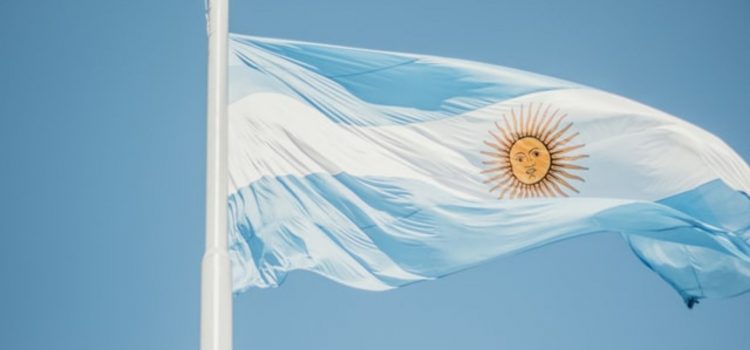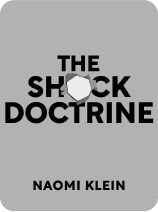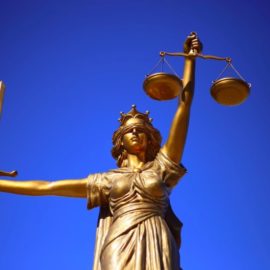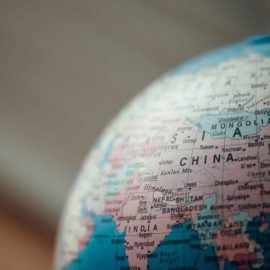

This article is an excerpt from the Shortform book guide to "The Shock Doctrine" by Naomi Klein. Shortform has the world's best summaries and analyses of books you should be reading.
Like this article? Sign up for a free trial here .
How did Argentina become a neoliberal economy? How did neoliberalism affected the country’s economy?
Argentina’s implementation of neoliberalism was rather brutal and horrific, much like earlier in Chile. The results were just as brutal: runaway inflation, soaring unemployment, starvation, and disease.
Here is how Argentina adopted neoliberalism.
Argentina Goes Neoliberal
The spread of neoliberalism in Argentina began with ousting of Isabel Perón in a military coup. The Argentine generals who ousted Perón turned to Pinochet (the then president of Chile) for advice on implementing the neoliberal ideas of the Chicago School of Economics. Although they didn’t privatize everything quite as quickly as Pinochet had—for instance, the oil reserves and social security remained under government control (at least at first), the methods were much the same, as were the results: soaring inflation, rising unemployment, and poverty.
However, their methods of keeping order were a bit different. While Pinochet’s public massacres were extremely effective at keeping the population in line, they were a public relations nightmare. Since the entire point of neoliberal economics was to trade with wealthy outsiders, it was counterproductive to have such a horrific reputation that other countries refused to trade with you.
Therefore, the Argentine generals settled on disappearances as their preferred means of eliminating opposition. Rather than publicly slaughtering people who spoke out against them, they’d simply kidnap those people. Sometimes they did so in secret, spreading the terrifying knowledge that the state could simply whisk anyone away at any time, with no warning. Other times they arrested people very publicly as a show of force. It’s estimated that some 30,000 Argentine citizens were taken during these years.
While not as dramatic as Pinochet’s methods, they were equally effective. Though everyone knew what was happening, they were too afraid to speak out—indeed, most would pretend that nothing was wrong. Argentines even have a phrase to sum up that combination of knowledge and denial: “We didn’t know what no one could deny.”
The Economic Truth and the “War on Terror” Story
Rodolfo Walsh, an investigative journalist who lived in Argentina during this time, had been keeping records of the junta’s many crimes. However, he wrote, the worst part of the regime wasn’t the arrests or the torture, but the economic policies. In those policies, Walsh said, you found not only the motive for these atrocities—that is, funneling more wealth to the wealthy—but also a system that deliberately torments millions of people with crushing poverty.
However, while the juntas didn’t make any secret of the fact that they were implementing sweeping economic changes, they were smart enough to deny that they were using violence to achieve those goals. Instead, when they acknowledged the kidnappings and killings at all, they justified their actions on the grounds that they were fighting against Marxist terrorists funded by—and beholden to—Russia’s KGB. If their tactics were monstrous, well, it was only because their enemy was, too.
Argentina’s Admiral Massera, speaking in terms that sound strangely familiar today, said that they were fighting a war for freedom and life itself, against people who wanted to impose tyrannical Communism. He also called these imaginary adversaries nihilists, claiming that their only purpose was to destroy everything—though, he said, they would hide their true intentions behind populism and social justice.
Once again, the CIA played a hand in the misinformation campaign. They worked to recast Chile’s ousted president Allende as a dictator in the making; a man who came to power through democracy, but was working to create a Russian-style police state. They claimed that the left-wing guerrilla fighters in Uruguay and Argentina were so numerous and deadly that the new governments had no choice but to suspend civil liberties and do whatever was necessary to crush them.
All of these claims were either grossly exaggerated or completely made up by the juntas, as later investigations by the US Senate would show. People were kidnapped, tortured, and killed long after any credible threat to the new regimes was over. The so-called War on Terror was actually a war on anyone who opposed the juntas’ free-market fundamentalism.

———End of Preview———
Like what you just read? Read the rest of the world's best book summary and analysis of Naomi Klein's "The Shock Doctrine" at Shortform .
Here's what you'll find in our full The Shock Doctrine summary :
- A study of the history of economic shock therapy
- How economic shock therapy gave rise to the disaster capitalism complex
- How communities are beginning to recover from the destructive shock treatments






